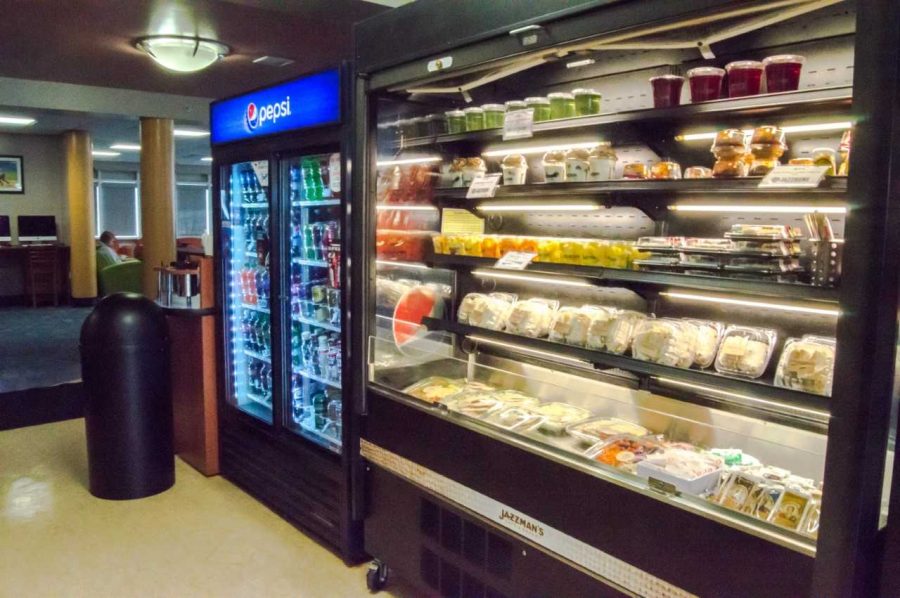Jazzman’s Supervisor Allegedly Rewriting Use-By Dates
Employees at Jazzman’s have confirmed that one of their supervising managers, Nancy Dijon, has intentionally changed use-by dates so that food stays on the shelf longer. While they do not know how long this has been going on, workers have said they caught their manager changing the dates within the last three weeks.
According to Michael Ward, district manager of Sodexo, Dining Services was unaware of the situation and “does not tolerate any modifying of use-by dates.” Since it has been brought to their attention, officials have now launched an internal investigation.
Dijon did not respond to requests for comment.
“Dining Services is conducting a thorough investigation and will take the appropriate action to ensure that their internal standards and practices are followed and strictly upheld,” said Ward. “We take great care in providing safe, quality foods.”

One of the packages of food with the written use-by date allegedly altered.
Juliana Goulart, a supervising manager at Jazzman’s, says that she was aware of the issue and told Dijon to stop. According to Goulart, Dijon allegedly told her that the food is “still good.” As Wednesday, Feb. 13, Dijon was still taking student orders at Jazzman’s.
For almost two weeks, the sticker gun at Jazzman’s was broken, so Dijon was writing the use-by dates by hand. Goulart says that she did not see the written dates get rewritten, but that she’s “seen the stickers get changed.”
Goulart believes that many people “don’t realize how dangerous it could be,” to leave food out past its expiration date, especially fruit. She also said she thinks Dijon was changing the dates because she doesn’t want to throw out food and lose money.
According to Donald Stankus, university lecturer in the Nutrition Sciences Department, sandwiches and wraps past their expiration dates can hold shigella or staph aureus, which cause gastrointestinal issues such as nausea, vomiting, diarrhea, and cramping. They may also contain listeria, although this typically affects at-risk populations, such as children, the elderly, and pregnant women.
However, Stankus said that although, “expiration dates are set seven days after the day of production of the older ingredient,” facilities often sets shorter dates based on product quality timeline. Dining Services may be setting earlier use-by dates based on the the quality of the food, rather than its safety warnings.
“A three-day old sandwich, kept at proper temperature, will be safe to eat but quality-wise may not be enjoyable,” said Stankus.

Another package with an allegedly altered use-by date.
According to Goulart, Jazzman’s gives fresh food a three-day shelf-life. They dispose of outdated food at the end of the day, said Goulart. Since Jazzman’s is closed on weekends, their food left at the end of the week is sent to the C-store, Food on Demand, or Bartels so that it can still be sold to students.
“We abide by the guidelines set forth by the USDA Food Code, which has specified shelf-life and holding guidelines for both raw and ready to eat foods,” said Ward. “Our own internal standards are often more stringent, and in the case of pre-packed foods, the shelf life is generally between one and three days.”
Dining Services has multiple procedures for examining the standards of their foods, including “visual inspections, monitoring temperatures, cooking and service procedures, and our overall sanitation practices, said Ward.
Jazzman’s employee Nalasia Langley confirmed that the outdated food gets thrown away at night and that sometimes, the C-store takes their leftover food on Fridays. Although she was not aware of the intentionally mismarked dates, Langley said the handwriting on the outdated wraps pictured looked like Dijon’s.














